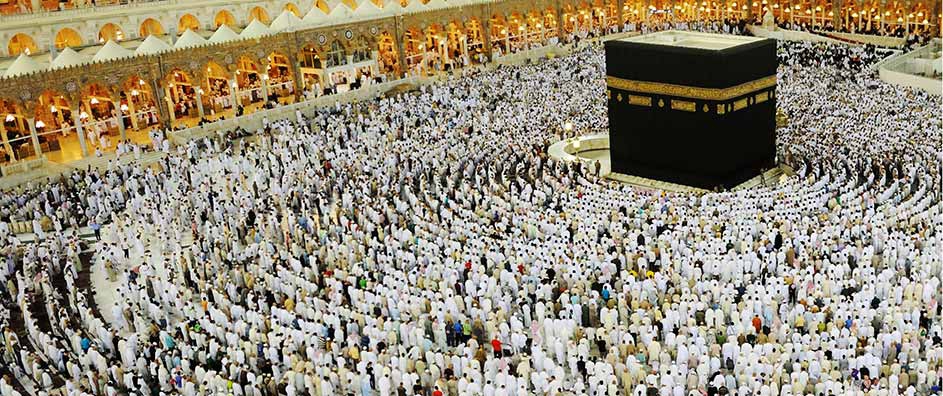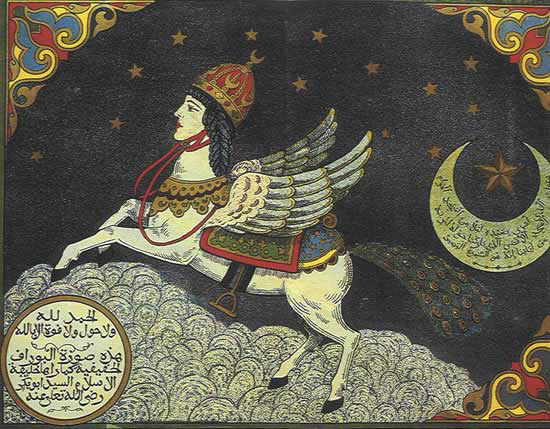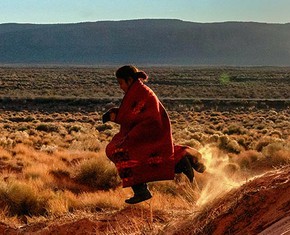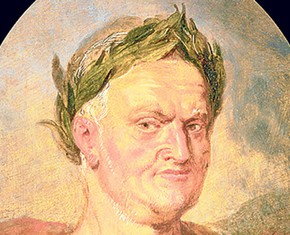The views expressed in our content reflect individual perspectives and do not represent the authoritative views of the Baha'i Faith.
Not only Jews and Christians have miracle stories to tell — other religions have them, too.
Five hundred years before Christ, the Buddha walked the earth, though his gospel and history were not written down until about the time of Christ. In some accounts of the ministry of the Buddha, no miracle stories exist at all. In others, there are hundreds. Which is correct? Buddhist scripture records that the Buddha said: “I, friend, when I so desire, remote from passions can reach and dwell in each of the nine jhanas [stations toward God] and I have the five supernormal powers” (S.N. 2:220). An exercise of one of these supernormal powers is recorded as follows:
Then the Exalted One went unto the River Ganges. Now at that time the River Ganges was full, up to the banks, so that a cow might drink therefrom. Then some men, desirous of crossing to the other shore, began to hunt for a boat, while others hunted for a lograft, and yet others began to tie reeds together.
But just as a strong man stretches out his arm and then draws back his arm outstretched, even so did the Exalted One vanish from this side of the River Ganges and stood on the shore along with the Order of Brethren. – Some Sayings of the Buddha, pp. 210-211.
Is this a historical account, or a story that sprouted as a metaphor and grew? We will never know.
Now consider Islam. With the possible exception of Muhammad’s night flight (Surah 17) and His cleaving of the moon (Surah 54), which some Muslims believe literally, the Qur’an does not present miracles related to Muhammad. Yet, what the Qur’an spares, those who understand the power of miracle stories to justify faith have made sure we get. Many later writers ceremoniously reproduced Muslim miracle stories in the volumes of traditions (hadiths) related of the Muslim holy figures. The historian Gibbon quotes one writer as ascribing 3,000 miracles to Muhammad, and says it is well known that Muhammad’s followers believed that He fed the hungry, cured the sick, raised the dead, and that both animate and inanimate nature conformed to His wish.
We have only to remember the proverb, which has passed into English: “If Muhammad will not go to the mountain, the mountain will have to go to Muhammad” to understand that some Muslims believe that Muhammad had the literal power to move mountains.
Jabir, an early disciple of Muhammad, told the story of how one day a devoted admirer of Muhammad knew that he would be hungry after a day of digging trenches around Medina, Jabir instructed his wife to kill a goat and bake some bread, and as evening approached he approached Muhammad and invited him home for dinner. Muhammad, seeing his love, and also knowing that the thousand men who were working with him must also be hungry, rose up and suddenly summoned all thousand men to feast upon what his admirer had prepared for him alone. All went to his home and the goat and bread fed all the thousand with food left over. The Prophet instructed that this leftover food be taken to others who had not been there. (Balyuzi’s Muhammad and the Course of Islam, p. 95).
Perhaps because of the scarceness of water in Arabia, miracles associated with Muhammad and water are numerous. In one such account, a company of believers were on their way to Tabuk when they ran short of water. A woman by whom they chanced carried two containers of water, but the source of water was a day and nights’ distance away. Muhammad touched the water satchels that then swelled enough for forty companions to drink, with enough remaining afterwards for the woman. When the woman arrived at her village and told what had happened, her village embraced Islam (see Mercy for the Worlds, Volume III by Qazi Mohd, pp. 108-109).
As in Christianity, tales of the miraculous continued and still continue to stretch through the long history of Islam. These miracle stories, probably developed for conversion purposes by overzealous practitioners of the storytelling art, likely grew a little at each telling, expanding their scope and stretching their credibility at the same time. Told mainly to illiterate, uneducated audiences, these oral traditions soon became written ones, and then became articles of faith.
In our scientific age, most of us find miracles hard to accept. So how can the Baha’i Faith – which teaches the central principle of the essential agreement of science and religion – possibly have any belief in miracles? Shoghi Effendi, the Guardian of the Baha’i Faith, explains:
The operation of miracles is not necessarily irrational or illogical. It does by no means constitute a limitation of the Omnipotence of God. The belief in the possibilities of miracles, on the contrary, implies that God’s power is beyond any limitation whatsoever. For it is only logical to believe that the Creator, Who is the sole Author of all the laws operating in the universe, is above them and can, therefore, if He deems it necessary, alter them at His Own Will. We, as humans, cannot possibly attempt to read His Mind, and to fully grasp His Wisdom. Mystery is therefore an inseparable part of true religion, and as such, should be recognized by the believers. – from a letter to an individual Baha’i, October, 1935.

















Comments
Sign in or create an account
Continue with Googleor